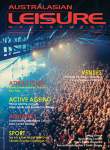Griffith University highlight challenges for cruise industry recovery

Griffith University highlights that restoring confidence in the cruise tourism industry, hit hard by COVID-19 outbreaks and a downturn in public perception, will be challenging.
Griffith Institute for Tourism Deputy Director, Dr Sarah Gardiner said consumers will want to see evidence of change after the fallout of several high-profile incidents involving cruise ships.
Dr Gardiner noted “health and safety procedures onboard ships will be front of mind for consumers, particularly the ability of crews to respond to and manage any future health crisis.
“Give people peace of mind that they will be looked after no matter where they are in the world. Consumers will want to see changes and communicating those changes will be vital.”
Social distancing has forced Australians indoors but Dr Gardiner expects an uptick in travel demand on par with the post-World War II travel boom once restrictions and travel bans are eased.
Dr Gardiner adds “rebuilding the cruise industry is strategically important to rebuilding the tourism industry.
“How quickly the tourism industry will recover is difficult to determine. Simple discounting will not be enough to restore consumer confidence.
“But rebuilding the cruise industry is strategically important to rebuilding the tourism industry. It is an important part of Australia’s tourism industry particularly for regional and remote destinations.”
According to the 2017-18 Australian Cruise Industry Economic Impact Assessment the industry generates $4.8 billion dollars for the Australian economy.
The Cruise Lines International Association also estimates one in 17 Australians took a cruise in 2018, representing 5.8% of the population.
Post-pandemic travellers will have different expectations
Dr Gardiner said the insurance industry will also need to play its part by improving the insurance cover travellers receive when they get sick abroad.
“Post-pandemic travellers will also expect some flexibility with their bookings, such as getting a refund should circumstances change or if you simply change your mind.”
She said travelling on cruise ships is unlike any other form of travel on the market and cruise operators will need to work with destination partners to rebuild the public’s trust.
“Once those health and safety processes are in place, sophisticated and sensitive marketing campaigns will be needed to remind consumers why they love this mode of tourism and that it is safe to voyage again.”
Eddie Ngaluafe, Communications Officer (Research), Griffith University
Image of Queen Mary II for illustrative purposes only
Related Articles
21st March 2020 - One million jobs a day being lost due to Coronavirus pandemic
17th March 2020 - Coronavirus impact puts up to 50 million jobs at risk across global tourism
15th March 2020 - Cruise ships from foreign ports banned to curb Coronavirus spreading
17th February 2020 - Darwin to welcome luxury cruise ship Queen Mary 2
1st October 2019 - Queensland Tourism Digital Workforce Development and Training Plan gets industry launch
3rd April 2019 - Tourism ‘the best partner for governments’ to generate jobs and economic growth
29th August 2018 - Buoyant New Zealand cruise sector seeks to balance growth
12th February 2018 - Former cruise industry association leader becomes CATO head
14th June 2016 - EarthCheck and Griffith University partner on sustainable tourism
28th March 2014 - Griffith University tourism research institute launched






